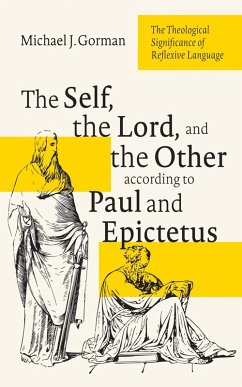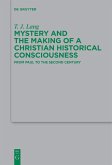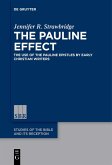This case is made by establishing the central role of reason in ancient discourse on what it means to be human more broadly, and in particular in Epictetus, who provides the clearest parallel for Romans. These contextualisations allow for a fresh reading of Paul's argument in Romans, where the relevance of these traditions is shown, not least for how Rom 12.1-2 frames Rom 12-15.
The study thus contributes to the recent scholarly trend of exploring Paul in ancient philosophical contexts and advances the discussion on the integration of Paul's "theology" and "ethics" within an ancient cultural encyclopedia.
Dieser Download kann aus rechtlichen Gründen nur mit Rechnungsadresse in A, B, BG, CY, CZ, D, DK, EW, E, FIN, F, GR, HR, H, IRL, I, LT, L, LR, M, NL, PL, P, R, S, SLO, SK ausgeliefert werden.









